General Country Overview
The Federal Republic Of Nigeria, A Federal Constitutional Republic Comprising Of Thirty-Six States And One Federal Capital Territory, Is The Most Populous Country In Africa And The Eighth Most Populous Country In The World.
With A Population Of Over 148 Million, Nigeria Is The Most Populous Black Country In The World.
It Is Listed Amongst The Next Eleven Economies, And Is A Member Of The Commonwealth Of Nations. The Economy Of Nigeria Is One Of The Fastest Growing In The World, With The International Monetary Fund Projecting A Growth Of 9% In 2008 And 8.3% In 2009.
Nigeria Is A Federal Republic. Umaru Yar'adua Of The People's Democratic Party Is The Current President Of Nigeria, Who Was Elected In 2007. The President Presides As Both Chief Of State And Head Of Government And Is Elected By Popular Vote To A Maximum Of Two Four-Year Terms.
Nigeria: An Emerging Market
Nigeria Is Classified As An Emerging Market. With Its Abundant Supply Of Resources, Well-Developed Financial, Legal, Communications, Transport Sectors And Stock Exchange (The Nigerian Stock Exchange, Which Is The Second Largest In Africa) It Is Rapidly Approaching Middle-Income Status.
Nigeria Is Ranked 37th In The World In Terms Of Gdp (Ppp) As Of 2007. The Bulk Of Economic Activity Is Centered In Four Main Cities: Lagos, Kaduna, Port Harcourt, And Abuja. Beyond These Three Economic Centers, Development Is Marginal.
Us-Nigeria Trade And Oil Trade
Nigeria Is The United States' Largest Trading Partner In Sub-Saharan Africa And Supplies One Fifth Of Its Oil (11% Of Oil Imports). It Has The Seventh-Largest Trade Surplus With The U.S. Of Any Country Worldwide. Nigeria Is Currently The 50th-Largest Export Market For U.S. Goods And The 14th-Largest Exporter Of Goods To The U.S. The United States Is The Country's Largest Foreign Investor.
Over Half Of The Country's Oil Production Is Exported To The United States And The Light, Sweet Quality Crude Is A Preferred Gasoline Feedstock.
The Nigerian Oil Industry
Petroleum Plays A Large Role In The Nigerian Economy, Accounting For 40% Of Gdp And 80% Of Government Earnings. The Nigerian Economy Is Largely Dependent On Its Oil Sector Which Supplies 95% Of Its Foreign Exchange Earnings. However, Agitation For Better Resource Control In The Niger Delta, Its Main Oil Producing Region, Has Led To Disruptions In Oil Production And Currently Prevents The Country From Exporting At 100% Capacity. Still, Nigeria Is The 12th Largest Producer Of Petroleum In The World (The Third Largest In Africa) And Is The 10th Largest In Proven Reserves.
The Upstream Oil Industry Is The Single Most Important Sector In The Economy. According To The 2008 Bp Statistical Energy Survey, Nigeria Had Proved Oil Reserves Of 36.22 Billion Barrels At The End Of 2007 Or 2.92 % Of The World\'s Reserves. The Nigerian Government Plans To Expand Its Proven Reserves To 40 Billion Barrels By 2010. Most Of This Is Produced From The Prolific Niger River Delta. Despite Problems Associated With Ethnic Unrest, Border Disputes And Government Funding, Nigeria's Wealth Of Oil Makes It Most Attractive To The Major Oil-Multinationals, Most Of Who Are Represented In Nigeria, With The Major Foreign Stakeholder Being Shell.
In 2007 Nigeria Produced An Average Of 2,355.8 Thousand Barrels Of Crude Oil Per Day, With A Change Of -4.8% Compared To 2006. According To The 2008 Bp Statistical Energy Survey, Nigeria Had Proved Natural Gas Reserves Of 5.29 Trillion Cubic Metres, 2.98% Of The World's Total In 2007. Due, Mainly, To The Lack Of A Gas Infrastructure, 75% Of Associated Gas Is Flared And 12% Re-Injected. Nigeria Has Set A Target Of Zero Flare By 2010 And Is Providing Incentives For The Production And Use Of Gas. The Government Also Plans To Raise Earnings From Natural Gas Exports To 50% Of Oil Revenues By 2010. It Has Been Reported In The 2008 Bp Statistical Energy Survey That Nigeria Had A Natural Gas Production Of 34.97 Billion Cubic Metres In 2007, 1.18% Of The World's Total.
Nigeria\'s Downstream Oil Industry Is Also A Key Sector Including Four Refineries With A Nameplate Capacity Of 438,750 Bbl/D. Nigeria Has A Robust Petrochemicals Industry Based On Its Substantial Refining Capacity And Natural Gas Resources. The Petrochemical Industry Is Focussed Around The Three Centres Of Kaduna, Warri And Eleme.
Upstream
The Upstream Oil Industry Is The Single Most Important Sector In The Country\'s Economy, Providing Over 90% Of Its Total Exports.
Oil Is Produced From Five Of Nigeria's Seven Sedimentary Basins: The Niger Delta, Anambra, Benue Trough, Chad, And Benin. The Niger Delta As Well As The Onshore And Shallow Offshore Basins Can Be Considered Fairly Well To Well Explored. Ventures Here Are Low Risk And The Basins Contain About 80% Of Producing Wells Drilled In Nigeria. During The Later 1990's Exploration, Focus Turned To High-Risk Ventures In The Frontier Basins Of The Deep Water Offshore With Encouraging Success. These Ventures Are Becoming Increasingly Attractive With Developments In Deepwater Exploration And Production Technology.
Nigeria Is A Member Of Opec Since 1971. Nigeria Is A Member Of Opec And Is Its 12th Largest Producer. The Former Secretary-General Of Opec, Dr Rilwanu Lukman, Is A Nigerian National And Petroleum Advisor To The President.
Nigeria's Crude Oils Have A Gravity Between 21'Api And 45'Api. Its Main Export Crudes Are Bonny Light (37) And Forcados (31). About 65% Of Nigeria's Oil Is Above 35Api With A Very Low Sulphur Content. Nigeria's Opec Quota Is 1.89 Million Bbl/D
Downstream
The Country Has Four Oil Refineries And There Are Eight Oil Companies And 750 Independents All-Active In The Marketing Petroleum Products. Cross-Border Smuggling Is An Ongoing Problem And There Are Frequent Reports Of Large-Scale Corruption In The Distribution And Marketing Chain. The Government, Through Its 100% State-Owned National Oil Company, The Nigerian National Petroleum Corporation (Nnpc), Has Had An All-Encompassing Control Over The Industry Through Its Shareholding In All The Companies Involved And In The Setting Of Wholesale And Retail Prices.
Delta Region
The Niger Delta Region Comprising Of Present Day Akwa Ibom, Bayelsa, Cross River, Delta, Edo, And Rivers States Of Nigeria And With An Estimated Population Of Over 30 Million Nigerians Has Been The Foremost Economic Resource Generator For The Nigerian State Since 1937 When Crude Oil Was First Struck At Oloibiri In Bayelsa State. It Is Estimated That Over Usd 300 Billion Has Accrued The Federal Republic Of Nigeria From Sales Of Crude Oil Over Forty Years Of Exploration.
The Government Is Currently Involved In The Development Of Different Actions To Restore Stability In The Niger Delta Area And Eliminate The Religious Ethnicity Problems. Throughout The Development Of The Nigerian Local Content For All The Companies Operating In The Country And The New Petroleum Bill, Nigerian Authorities Are Working For A Better Future, A Better Social Development And An Economic Distribution Of The Resources.
Government Participation In The Oil Industry
Until 1960, Government Participation In The Oil Industry Was Limited To The Regulation And Administration Of Fiscal Policies. In 1971 Nigeria Joined Opec And In Line With Opec Resolutions The Nigerian National Oil Corporation (Nnoc) Was Established, Later Becoming Nnpc In 1977. This Giant Parastatal, With All Its Subsidiary Companies, Controls And Dominates All Sectors Of The Oil Industry, Both Upstream And Downstream.
In April 2000, The Nigerian Government Set Up A New Committee On Oil And Gas Reform To Deal With The Deregulation And Privatisation Of Nnpc.
The Ministry Of Petroleum Resources Regulates The Petroleum Industry In Nigeria. The Government Retains Close Control Over The Industry And The Activities Of The Nnpc, Whose Senior Executives Are Appointed By The Ruling Government.
Financing The Oil Sector
The Central Bank Of Nigeria (Cbn) Declared Lately That Nigeria Spends About $12 Billion (N1.9 Trillion) Yearly On Various Activities In The Nation\'s Oil And Gas Industry. There Is Always A Great Need For Funding The Sector For Accelerated Economic Development And For Repositioning The Country In The Global Energy Dynamics.
With Proven Oil Reserves Of 36.22 Billion Barrels, Average Daily Production Of 3.2 Million Barrels And A Gas Industry Projected To Match Oil Revenues As Facilities Come On-Stream Nigeria Has The Potential To Grow Its Production Levels Significantly. Already Estimates Suggest That The Financing Of The Oil And Gas Industry In Nigeria Is Worth Over Us$20 Billion Annually And Nigerian Banks Are Taking A Larger Percentage Of This As They Diversify Into Upstream Deals And Balance Their Energy Portfolios.
Nigeria's Worldwide Position In The Oil Industry Can Be Improved Upon If More Funds Are Injected Into The Industry And Additional Investments Undertaken.
 Engr. Charles Osezua And Engr. Gabriel OselokaChairman And Ceo And Group Executive DirectorOwel-Linkso Nigeria Limited
Engr. Charles Osezua And Engr. Gabriel OselokaChairman And Ceo And Group Executive DirectorOwel-Linkso Nigeria Limited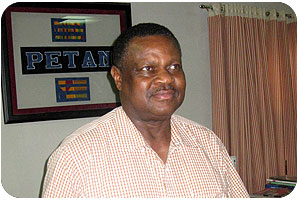 Mr. Shawley CokerPresident And Chairman Of Petan (Petroleum Technology Association Of Nigeria)Ciscon Nigeria Limited
Mr. Shawley CokerPresident And Chairman Of Petan (Petroleum Technology Association Of Nigeria)Ciscon Nigeria Limited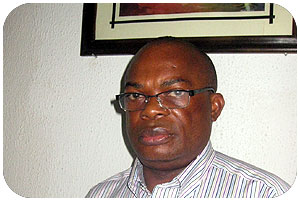 Mr. Effiong Okon EkpenyongMD/CEOPetro-Energy Resources Limited
Mr. Effiong Okon EkpenyongMD/CEOPetro-Energy Resources Limited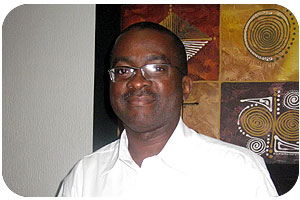 MR. Emeka C. EneMDOILDATA
MR. Emeka C. EneMDOILDATA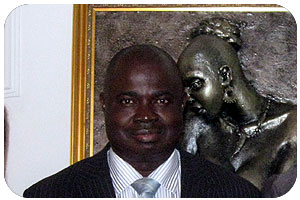 Engr. George OkoyoMDPoint Engineering Ltd.
Engr. George OkoyoMDPoint Engineering Ltd.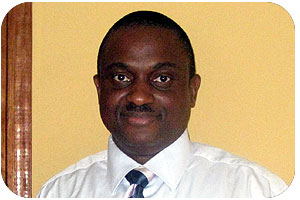 Engr. Sir Okezie AkwiwuMD And CEOHyprops Nigeria Limited
Engr. Sir Okezie AkwiwuMD And CEOHyprops Nigeria Limited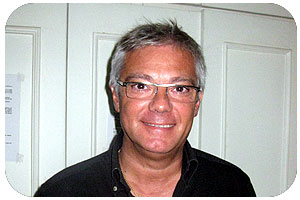 Mr. Andrea CortesiMDCAMERON Valves & Measurement West Africa
Mr. Andrea CortesiMDCAMERON Valves & Measurement West Africa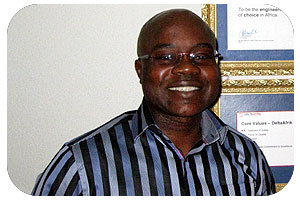 Mr. Akin OdumakindeManaging DirectorDeltaafrik Engineering Ltd.
Mr. Akin OdumakindeManaging DirectorDeltaafrik Engineering Ltd. Engr. Yaro P. Balami And Engr. (Mrs.) Mary Unobe-TemboMD/Ceo And GmCAKASA (NIGERIA) COMPANY LIMITED
Engr. Yaro P. Balami And Engr. (Mrs.) Mary Unobe-TemboMD/Ceo And GmCAKASA (NIGERIA) COMPANY LIMITED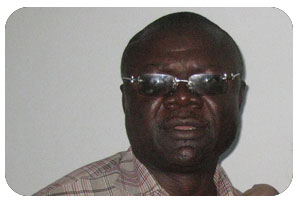 Mr. A. A. AtamunoMDMidis Energy Services Limited
Mr. A. A. AtamunoMDMidis Energy Services Limited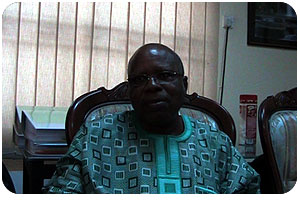 Dr. Diran FawibeChairman And CEOInternational Energy Services Limited (IESL)
Dr. Diran FawibeChairman And CEOInternational Energy Services Limited (IESL)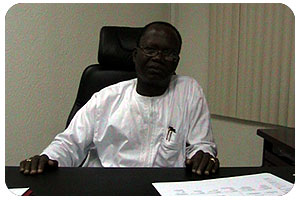 Engr. Adams C. OkoeneManaging DirectorMidwestern Oil & Gas Co. Plc
Engr. Adams C. OkoeneManaging DirectorMidwestern Oil & Gas Co. Plc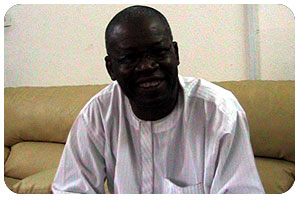 Mr. D. MohammedMDDAMAGIX GROUP
Mr. D. MohammedMDDAMAGIX GROUP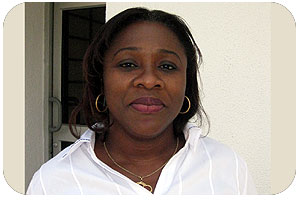 Mrs. Pat OtrofanoweiMDSwift Rental Cars Limited
Mrs. Pat OtrofanoweiMDSwift Rental Cars Limited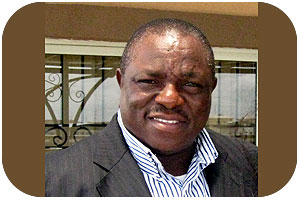 Mr. Adjarho Mohammed OyiboChairman and CeoAjamy Oil & Gas Limited
Mr. Adjarho Mohammed OyiboChairman and CeoAjamy Oil & Gas Limited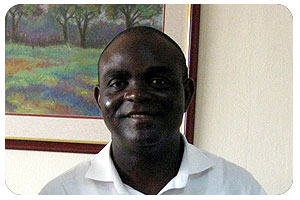 Mr. Dapo OshinusiMD And CEOMansfield Energy Nigeria Limited
Mr. Dapo OshinusiMD And CEOMansfield Energy Nigeria Limited Euroflow Desingns LimitedOils and Gas Engineering
Euroflow Desingns LimitedOils and Gas Engineering Emval Holdings LimitedOils and Gas Engineering
Emval Holdings LimitedOils and Gas Engineering Point Engineering Limited (POINT)Oils and Gas Engineering
Point Engineering Limited (POINT)Oils and Gas Engineering International Energy Services Limited (IESL)Oil and Gas Services
International Energy Services Limited (IESL)Oil and Gas Services Damagix Nigeria LimiteOil and Gas Services
Damagix Nigeria LimiteOil and Gas Services Midwestern Oil & Gas Company PlcOil and Gas Services
Midwestern Oil & Gas Company PlcOil and Gas Services Nadabo Energy LimitedOil and Gas Services
Nadabo Energy LimitedOil and Gas Services Midis Energy Services LimitedOil and Gas Services
Midis Energy Services LimitedOil and Gas Services Weafri Well Services Company LimitedOil and Gas Services
Weafri Well Services Company LimitedOil and Gas Services Ajamy Oil & Gas LimitedOil and Gas Services
Ajamy Oil & Gas LimitedOil and Gas Services Chevron Nigeria LimitedOil and Gas Services
Chevron Nigeria LimitedOil and Gas Services Hyprops Nigeria LimitedOil and Gas Services
Hyprops Nigeria LimitedOil and Gas Services Cakasa (Nigeria) Company LimitedOil and Gas Services
Cakasa (Nigeria) Company LimitedOil and Gas Services Linkso Nigeria LimitedOil and Gas Services
Linkso Nigeria LimitedOil and Gas Services Oildata Wireline Serivces LtdOil and Gas Services
Oildata Wireline Serivces LtdOil and Gas Services Ciscon Nigeria LimitedOil and Gas Services
Ciscon Nigeria LimitedOil and Gas Services